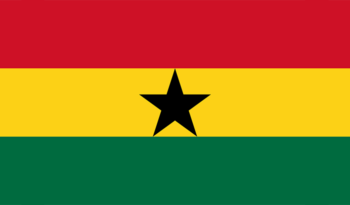
While Ghana has historically faced significant undernutrition (e.g., stunting, wasting, and micronutrient deficiencies), the country has more recently seen increasing prevalence of diet-related diseases associated with overnutrition such as obesity. An estimated 43% of Ghanaian adults were classified as either overweight or obese in a 2016 study, and nearly half of adults in Ghana diagnosed with type 2 diabetes also had overweight or obesity.
In January 2014 Ghana’s government implemented Excise Duty Act 2014 (ACT 878), which imposed a 17.5% ad valorem excise tax on bottled water and other non-alcoholic beverages. In May 2023, this tax rate increased to 20% via the Excise Duty Amendment Bill 2023 (ACT 1093), which also expanded the range of taxed products to include fruit and vegetable juices.
Ghana’s excise tax is structured with a main objective to increase revenue, but could also potentially discourage excess consumption of sweetened beverages as observed elsewhere (as in Chile and South Africa, for example) due to any price increases faced by consumers. Because the tax base includes plain bottled water, however, it remains to be seen whether this may discourage bottle water purchases or consumption as well as potential substitution towards other water source such as sachet waters and non-potable waters.
The main aims of our work with research partners in Ghana are to:
- Analyze price changes of products subject to the original and amended taxes and their untaxed alternatives;
- Investigate the factors influencing water and other beverage purchases among low-income households; and
- Design and pilot a survey to collect dietary and anthropometric data among preschool children in preparation for a future evaluation of nutrient profile modeling and front-of-package warning labeling in Ghana.
Policy Research
In-Country Research Partner
In-Country Team Leads
- Seth Adu-Afarwuah, PhD - Professor, University of Ghana, Legon, Ghana
- Gloria Odei Obeng-Amoako, PhD - Lecturer, University of Ghana, Legon, Ghana
- Monica Lambon-Quayefio, PhD - Senior lecturer, University of Ghana, Legon, Ghana